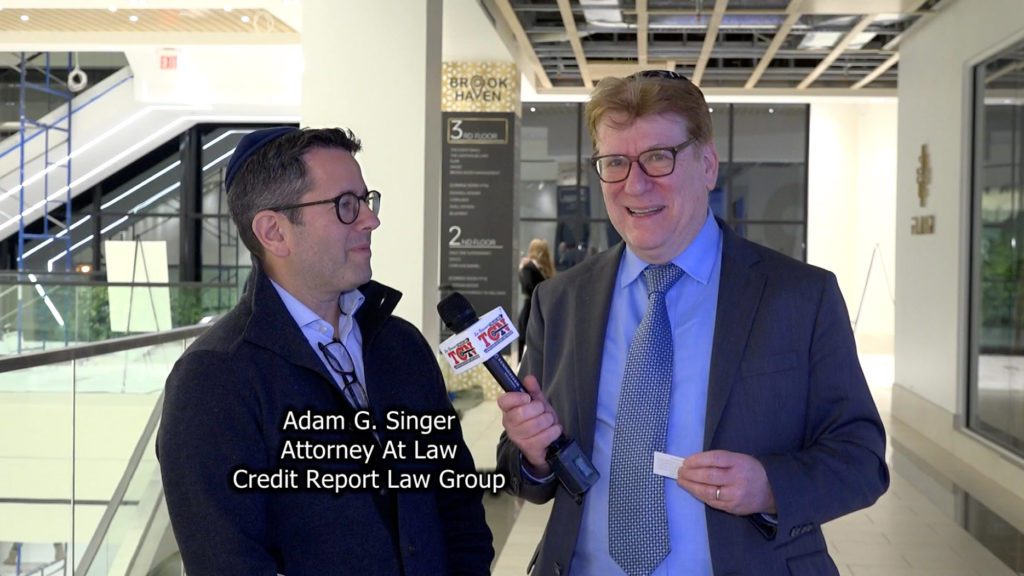In the Media
Rejecting ‘Blind Adherence to Outdated Precedent,’ Judge Goes His Own Way on Attorney Fees
A SENIOR federal judge in Brooklyn on Tuesday awarded more than $500,000 in attorney fees on a $250,000 settlement.
New York Law Journal – Read More
How To Protect Yourself From Travel Site Scammers
As reported by the Identity Theft Resource Center—and previously discussed in this column—publicly reported data breaches and cyberattacks are on the rise, and scammers are becoming increasingly creative.
Trends In Identity Theft In 2024 And How You Can Protect Yourself
Identity theft is an issue that hits close to home for me. Early in my career as an attorney focusing on credit reporting errors, I experienced firsthand the effect that identity theft could have on my clients.
]Worried About Financial Fraud After A Healthcare Data Breach? Here’s What You Can Do
Cyberattacks can wreak havoc on a company’s database, ultimately causing great harm to the company itself and those whose data it maintains. This is especially true for healthcare companies that store an extensive amount of patients’ valuable information.
Credit Card Feature May Mean Headaches For Fraud Victims
A modern credit card feature that provides merchants with automatic updates when previous customers of these merchants get new cards is backfiring, the Wall Street Journal recently reported. The article states that this feature, although meant to increase customer convenience, is often ineffective in stopping the cycle of fraud.
How Scammers Are Using Two-Factor Authentication To Commit Fraud
Two-factor authentication (2FA) is a method that allows users to gain access to their accounts and devices by presenting two separate and distinct forms of identification. A common form of second authentication is a text code sent to your smartphone. The idea behind 2FA is to prevent thieves from easily taking control of your devices and accounts with little more than a stolen password.
Talkline Radio Host Zev Brenner interviews Attorney Adam Singer.
Rising costs have been something that all consumers have had to deal with in recent times. This is no different when it comes to car insurance costs. Understanding how to manage rising costs can help you keep a healthy credit score.
Adam’s thoughts:
Consumer and household debt is at an all-time high. That’s according to the New York Fed, and that increased activity means a few things for consumers. And keep in mind that each consumer in this country has multiple credit files maintained about them by not only the national credit bureaus, Equifax, Experian, TransUnion, but also dozens of consumer reporting agencies that specialize in niche areas of the economy; insurance, banking employment, background checks and so much more. And so that increased credit activity means a few things for consumers…
I spoke with Newsweek yesterday about how the pandemic is affecting consumers with gym memberships. We primarily help consumers with credit report errors. Unscrupulous gyms that continue to charge consumers — even though the gym has been ordered closed — may need to answer for their reporting inaccurate information to the credit bureaus.
Here’s one section from the article:
Attorney Adam Singer, whose firm advocates on behalf of consumers, said he believes “emphatically” that gyms should not be able to shut down and continue to charge consumers, though they may “probably try to do it anyway.” Singer thinks “consumers should resist that.”
He laid out three options gym members should consider to avoid being charged for services they cannot receive during the effect of emergency orders.
Got A Common Name? Better Watch Your Credit Report
As a lawyer focusing on Fair Credit Reporting Act cases, I have seen firsthand the impact that a mix-up in credit reporting can have on an individual’s financial and emotional well-being.
Debt Collectors (And Not Just Banks) Are Responsible For Accurate Consumer Credit Reporting
A large debt collection company in the United States was recently accused of violating federal consumer protection laws. The Consumer Financial Protection Bureau filed a proposed order that, if entered by the court, would require the company to pay over $12 million to consumers affected by what the CFPB claims are illegal debt collection practices, as well as a civil penalty of $12 million.
What To Do If Your Identity Has Been Stolen: Part 5
As I mentioned in previous articles, identity theft has affected millions of people and will continue to affect millions more. It is crucial to be aware and know your rights.
What To Do If Your Identity Has Been Stolen: Part 4
As I mentioned in previous articles, identity theft affects millions of people. The National Council on Identity Theft reported that almost 50% of U.S. citizens were victims of identity theft between 2020 and 2022, equating to billions of dollars from traditional identity theft cases.
I enjoyed sitting down for a TV interview at the studio for NYC’s own legal news show Today’s Verdict. Topic was credit report errors and how consumers can monitor their reports for free via annualcrediterport.com.
(Also a pleasure meeting and watching the interview of Commissioner Salas of the NYC Department of Consumer Affairs.)
My Identity Has Been Stolen! What Do I Do Now? Part III
As a consumer, what can you do to help protect yourself from identity theft? In a previous article, layers of protection were listed as ways to protect one’s consumer credit file. Another layer of protection that can be used is a security freeze, a.k.a. a credit freeze.
My Identity Has Been Stolen! What Do I Do Now? Part II
Currently, there is no one form of protection that is guaranteed to prevent identity theft, but like homeowner’s insurance and automobile insurance, consumers often can take steps to reduce their risk.
My Identity Has Been Stolen! What Do I Do Now? Part One
According to the Federal Trade Commission, there were 1.4 million reports of identity theft in 2021. The majority of identity theft cases dealt with credit cards, loans, leases, phones, utilities and bank fraud.
What everyone should know about employer background checks
Background check companies sometimes rely on partial information, like a birth year versus a full birth date, resulting in frequent mixups, experts said. “It’s a much harder problem with criminal background reports, because oftentimes there is no date of birth or Social Security number provided,” said Adam G. Singer, a consumer protection lawyer.
“When dealing with public records, often you may just have a first and last name, and possibly an address, and the credit bureaus and background check companies won’t always insist on an exact match,” Singer said.
“Contractor licensing and home remodelling is kind of like the Wild West,” said Adam G. Singer, an attorney specializing in consumer protection with offices in Manhattan, Rockland and Westchester counties.
When it comes time to draw up a contract, make sure it stipulates that the contractor must put any advance payments into an escrow account, Mr. Singer said. This is one way to ensure that the contractor doesn’t use your deposit to pay for his next vacation. “If you’re nervous about how the contract should be worded, hire a lawyer to look one over,” Mr. Singer said.
Errors at Background-Check Firms Have Cost Job Seekers Employment
With employers rushing to hire and onboard new employees in an expanding job market, Sterling Check and other background-check firms are doing robust business. These companies look through a job applicant’s past for resume discrepancies and criminal records on behalf of a job applicant’s potential employer. Recently, Sterling Check went public at a $2 billion valuation with its share price rising as investors expect that a hot job market will increase demand for background checks.
However, though Sterling Check and other firms claim a low rate of error, some job seekers have lost work by being wrongly identified as convicted criminals. Examples abound online of the havoc such errors have made in the lives of job seekers. Though Sterling Check has declined to say what percentage of its report contains errors a competitor, First Advantage of Atlanta, told a federal court its rate of inaccuracy was 0.38% or 13,392 out of 3.5 million reports. A judge described the level of errors as “unflattering” adding that “close enough” was not a valid defense.
Unfortunately, even with attorneys filing lawsuits regularly accusing background-check firms of inaccuracies violating the Fair Credit Reporting Act, the cost is rarely significant compared to their hundreds of millions in revenue. “We try to bring some measure of justice,’ Singer said. “I don’t know how much deterrence there is when business is so profitable.”
How To Guard Against Sudden, Unexpected Drops In Your Credit Score
I recently authored an article for Forbes on how to protect yourself from unexpected drops in your credit score.
Here’s one section from the article:
Credit score algorithms treat lower- and higher-risk consumers differently, even for the same negative credit event. In the case of a late payment (a relatively minor negative event), a high credit score suffers a more drastic drop than a low credit score. On the surface, this seems counterintuitive. The individual with the higher credit score presents the lower credit risk to lenders, so why does that healthy credit record suffer deeper repercussions?








